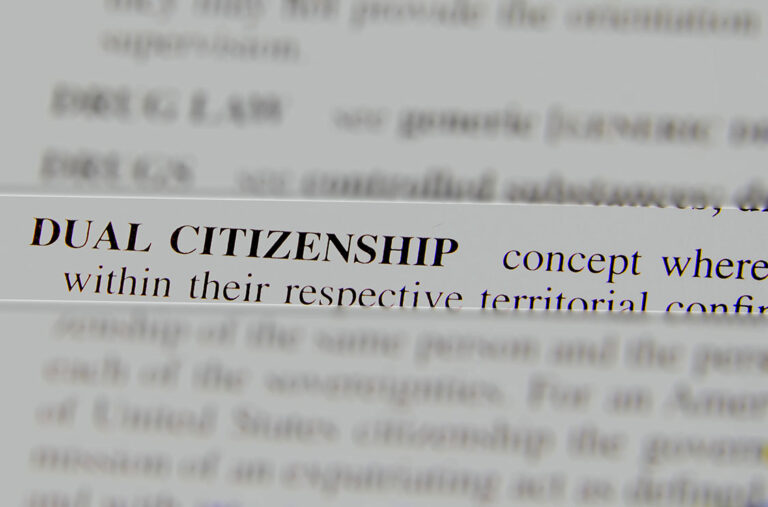Your move from the US to Malta is going to be fantastic. It will open up a beautiful, sunny nation to you—and the slower pace lets life find a better rhythm. But the move also means lots of practical concerns.
What visa do you need to get? How do you rent an apartment? Do you understand the local culture?
Don’t worry. We have answers to all this and more below.
Maltese Visas Available
If you’re visiting Malta to test the waters, that’s easy—US citizens can enter without a visa for up to 90 days.
But if you’re moving there, chances are you’ll need more time. And that means you need a visa.
- Work Visa: A common choice for Americans moving to Malta is the Work Visa (Employment Residency). Obviously, you’ll need a job offer from a Maltese employer who can prove they couldn’t find a suitable EU candidate. Your employer usually handles the visa paperwork, which takes about three months. The benefit here is that their team handles most of the bureaucratic headaches. If you’re highly skilled, you might opt for the EU Blue Card—it gives you Europe-wide flexibility but means you must make over €32,000 a year to qualify.
- Digital Nomad: If you work remotely for a company outside of Malta, this visa lets you permanently reside in the country. The major catch is you need to make at least €2,700a month. This renewable visa allows a year’s stay as long as your income comes from abroad and you have private health insurance and can prove you have housing. Keep in mind, though, it won’t lead to permanent residency.
- Retirement Visa: For those who are financially self sufficient, this visa allows you to live in Malta. You must rent or buy a property meeting minimum value requirements and pay an administrative fee (~€2,500).
- Malta Permanent Residence Program (MPRP): This programs give you residency through property investment and contributions. The MPRP provides permanent residency rights but requires a high upfront investment. You can learn more about Maltese Golden Visa here. Learn more about recent changes to the Malta golden visa program.
Cost of Living in Malta
Good news—Malta is roughly 40% cheaper than most US cities. A single person’s monthly expenses average €800 (excluding rent), while a family might spend around €2,800. Renting in high-demand areas like Sliema or Valletta costs between €700–€1,500 per month. Gozo or smaller towns offer lower prices (€500–€700).
Utilities typically cost €80–€150 monthly, depending on your usage. Groceries are affordable—think €200–€300 per month per person. Eating out won’t break the bank either, with casual restaurant meals averaging €10–€15 per person.
Public transport is inexpensive, around €2 per bus ride, or €21 weekly for unlimited travel. Many expats skip owning a car entirely—especially since gasoline prices in Europe can give you quite the sticker shock.
You can see our full in-depth breakdown here for the cost of living in Malta.
Healthcare System in Malta
Some expats are surprised to learn that Malta’s healthcare consistently ranks among the world’s very best.
The public system, including the modern Mater Dei Hospital, is top-notch but only free if you’re employed and contributing to social security.
Americans use private health insurance since it’s actually a requirement for non-EU nationals to get a visa here. But don’t worry, it’s much cheaper than in the US, with comprehensive plans available at pretty reasonable rates (€50–€100 monthly for younger adults).
Private hospitals offer shorter wait times and affordable out-of-pocket services—around €20–€30 for a general doctor’s visit or €50–€100 for specialist consultations. Prescriptions are also more affordable, significantly cheaper than in America.
Renting or Buying in Malta?
Most newcomers rent first to explore different neighborhoods. Rental agreements typically last a year, often requiring a month’s rent upfront and a security deposit. Apartments commonly come furnished, making the move much easier than in other European countries where this is not the norm.
Once you get your bearings, you might be ready to buy. Malta is one of the cheapest countries in Europe to buy a home, and that’s probably why 75% of Maltese people own the house they live in.
Banking and Money
Opening a bank account in Malta is fairly straightforward for expats. Major banks like Bank of Valletta, HSBC, and BOV require your passport, proof of residence, and sometimes proof of income.
Also, be aware that the Maltese economy still mainly runs on cash, so it’s worth having euros on you just in case.
If you’re worried about how to navigate taxes and avoid double taxation, check out this resource regarding tax liability for dual citizens of Malta.
Fit In with the Maltese Culture
Malta’s culture is unlike anything else in the region. yes, you have Mediterranean warmth and relaxation, but it’s blended with a British formality.
English and Maltese are official languages, so you’ll be able to communicate pretty effortlessly. And you’ll find that Maltese people are friendly, community-oriented, and family-focused.
It’s worth noting that life moves slowly here. Businesses often close during mid-afternoon for a break, shops close early or don’t open on Sundays, and punctuality is much more flexible than most Americans are used to.
Enjoying life at a slower pace is part of the charm, but be warned: it can be frustrating at first.
Ready for Your New Life in Malta?
Your new Maltese life is waiting for you. And it’s an adventure well worth undertaking, especially when you know the answers to the practical questions!
Once you’re there, more likely than not you will want to become a dual citizen. At that point, it’s time to look into our full guide on becoming a citizen of Malta.


